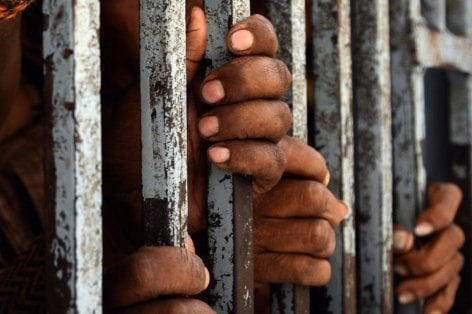Decriminalizing petty offences: Fasten process of enacting our community service law - Dr. Isidore Tuffour
So for me, the call that I’ll make at this point, is the need to fasten the process of enacting our community service law."

Researcher and Criminal Law Lecturer at the GIMPA Faculty of Law, Dr. Isidore Tuffour says authorities must fasten the process of enacting the Community Service Sentencing Bill.
The bill when passed will ensure that persons who commit certain offences that are not criminal in nature would be given community work to do, instead of a prison sentence.
Dr. Tuffour was speaking on The Law Programme by host Samson Lardy Anyenini where he argued that some laws on petty offences like noise-making and begging must be repealed from Ghana’s statutes books.
“These are offences even if they were useful at the time they were made, they have no justification being on our statutes. We need to, first of all, know the policy that led to the criminalization of these acts at the time, even if they were justified, today they are no longer justified. And that’s why we need them off our statutes books,” he stated.
At the Kumasi Central Prison for instance, authorities say 63 per cent of inmates serving 24 months or less are people who committed petty offences. An Officer in charge of Reception and Criminal records at the Kumasi Central Prison, Francis Awako, made this known at a stakeholders roundtable last week.
For some time now, there have been calls from Parliamentarians to human rights advocates against the criminalisation of petty offences.
Justice Emile Francis Short, a former Commissioner-General of the Commission on Human Rights and Administrative Justice (CHRAJ) has described laws that criminalise petty offences are vague and arbitrary.
Member of Parliament for the Madina Constituency, Francis-Xavier Sosu also in an article on March 8, 2022, argued that the criminalisation of petty offences amount to a violation of 1992 Constitution, the Regional and International Human Rights Standards, and threatens the achievement of SDGs.
Dr. Tuffour in turn noted that: “When you talk about criminalization and decriminalization, it involves a number of principles to apply. First of all, check the social harm that the law seeks to address, check whether you can only archive that objective through criminalization or there are other alternatives. We have not sat down as a country, to think about the other alternatives. Even alternatives to imprisonment, for how many years, we are still dragging our feet. Community Service is there, even if we intend to keep some of these crimes on our statutes books, should the individual who is found guilty go to jail for that? Can’t we have other alternatives to imprisonment? So for me, the call that I’ll make at this point, is the need to fasten the process of enacting our community service law."


